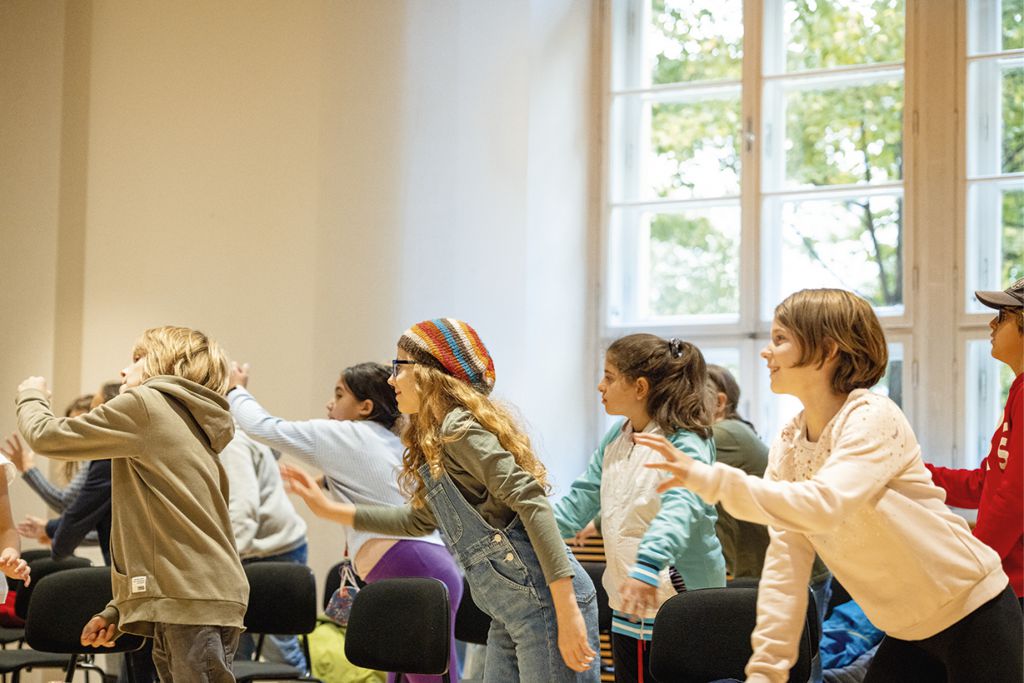On 26 January 2022, the mdw Children’s Choir will present the fruits of this past year’s labours in an atmospheric end-of-semester concert at the Future Art Lab. Astrid Krammer, who teaches at the mdw’s Anton Bruckner Department, reveals how a rehearsal of this ensemble looks and why the benefits of its offerings extend beyond the participating children.
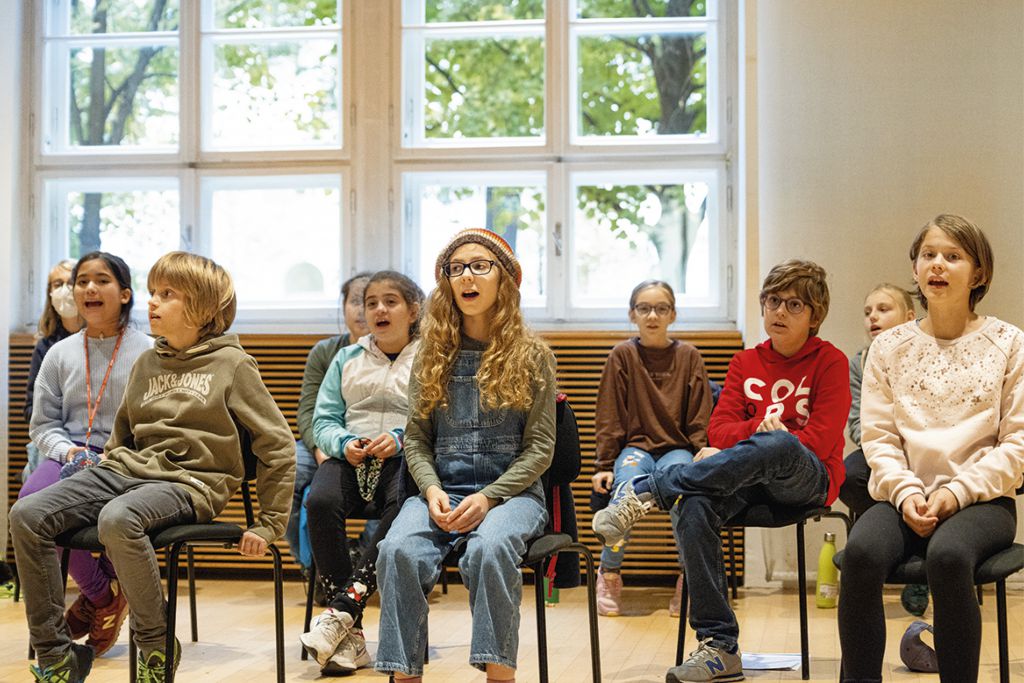
“Singing in a choir is about much more than just the musical dimension: it gives rise to a community, an energy, a feeling of togetherness.” Astrid Krammer, who directs the Children’s Choir of the Vienna Choir School and teaches choral conducting for children’s choirs as well as vocal training for children and adolescents at the mdw, knows all about the benefits that children can derive from choral singing. “For many children, choral singing offers reinforcement—of their self-confidence as well as their self-image.” What’s more, targeted training in vocal technique changes breathing and body-awareness, it cultivates musical skills such as one’s sense of rhythm, and it also allows children to experience the joy of contributing to a full choral sound. “It’s such a happy atmosphere … and when I’m exhausted after school, singing in the choir gives me back my power,” says an enthusiastic Ioana, age 12.
I’m in the children’s choir because I love to sing. And what I enjoy most of all is singing together with others and performing, like we are right now at the Raimund Theater.
Lotte, 12 years old
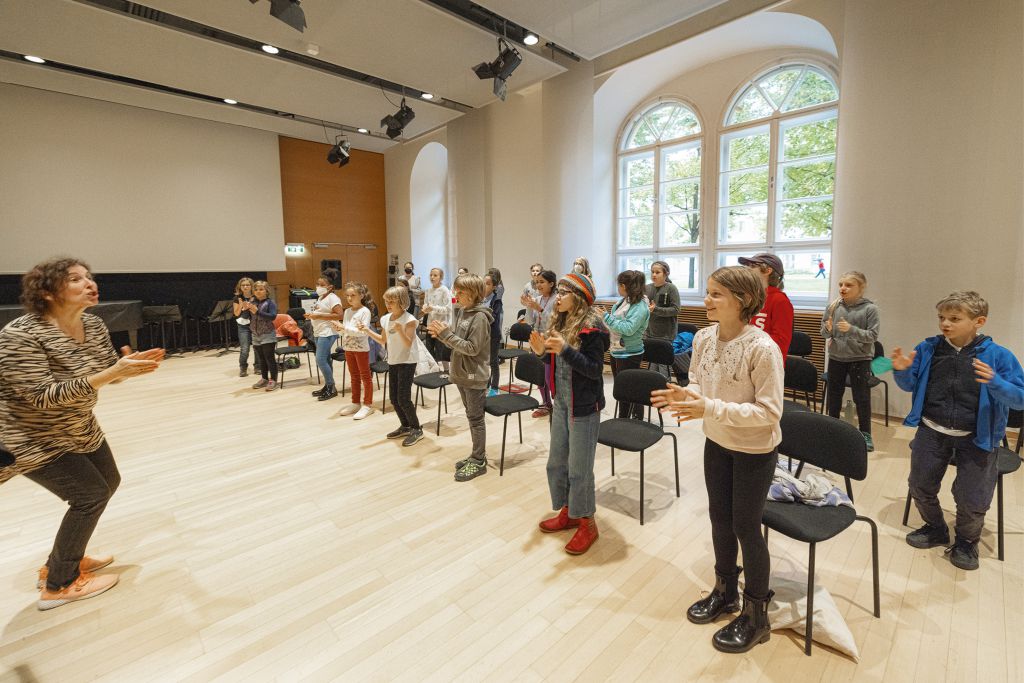
A Children’s Choir rehearsal lasts 90 minutes. Weather permitting, the choir director begins their work in the mdw’s acoustically vibrant inner courtyard with 20 minutes of vocal warm-ups. Afterwards, either Astrid Krammer or music education students rehearse various pieces with them. “Sometimes, we’ll also dance or do some work relating to a foreign language for a particular song—and we alternate between phases of concentrated study and relaxed repetition. There’s also time reserved for chatting or doing things like discussing the programme for the ensemble’s next concert. And prior to the COVID-19 crisis, we also included things like going out for pizza together, watching movies, or visiting museums as part of our choir weekends. Unfortunately, those kinds of things haven’t been possible recently.”
Every concert where these kids make music with joyful abandon is something extremely special.
Andrea Pfestorf-Janke, artistic management office of the Vienna Choir School
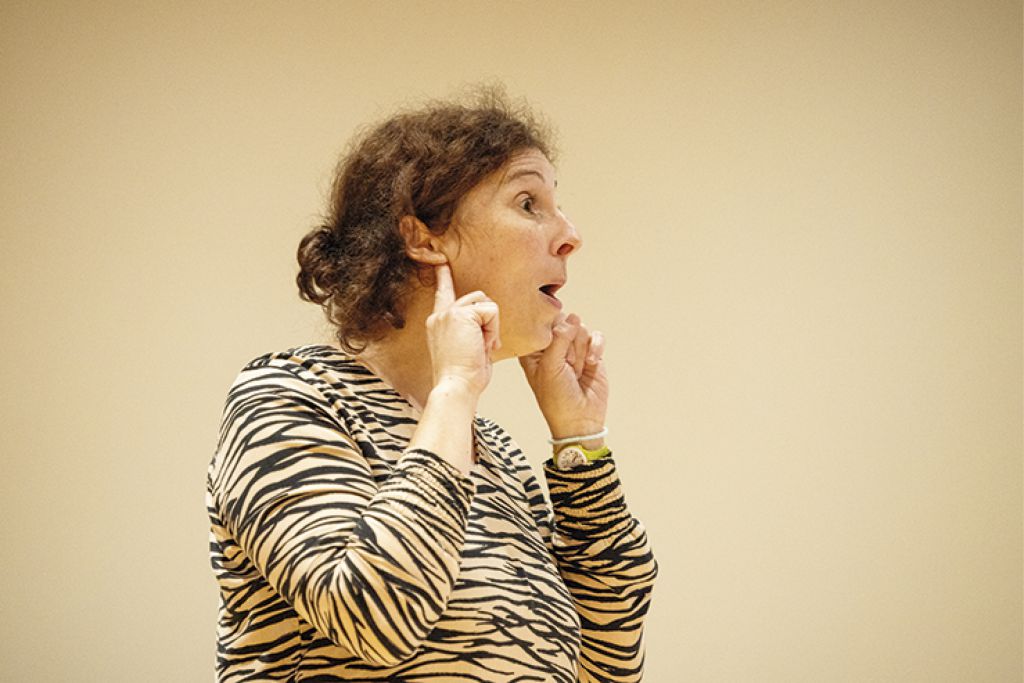
The Vienna Choir School—and hence the Children’s Choir—arose from an interdisciplinary “univision” project in 2009. And the very next year, students of the Anton Bruckner Department of Choral and Ensemble Directing and Music Theory in Music Education were already able to benefit from the opportunity to engage in practical teaching work with the Children’s Choir. Children between the ages of nine and 14 are taught to work at a professional level, here, and students observing the rehearsals are treated to an inside look at educational work with children. “Working with kids is a far more immediate experience than his working with an adult choir,” Astrid Krammer points out. “You get a far more direct sense of how positively the kids response to a given piece of music, what the atmosphere’s like, and how well they’re able to concentrate.” Education students also get an impression of what’s important when warming up and rehearsing. And topics such as working with parents and essential elements of preparing for a successful concert like blocking rehearsals, dress rehearsals, and dealing with stage fright are further things to which students get introduced. What’s more, the age range encompassed by the Children’s Choir roughly matches the ages served by schools of general education and music schools. “I learned an incredible amount in my work with the mdw Children’s Choir: rehearsal methods, how to work on vocal technique with special target groups, and how to work professionally with children. And I found it particularly interesting to learn about the criteria that go into selecting repertoire for children as well as about just what child-appropriate repertoire is in the first place,” remembers former music education student Andrea Steger, who now directs ensembles including the Miniseestimmen, a children’s choir in Vienna’s Seestadt Aspern neighbourhood.
Alongside how I was able to gather some early musical experience and get to know the mdw, I’m grateful above all for one thing: the friendships I made back then that have lasted to this day.
Markus Adenstedt, music education student
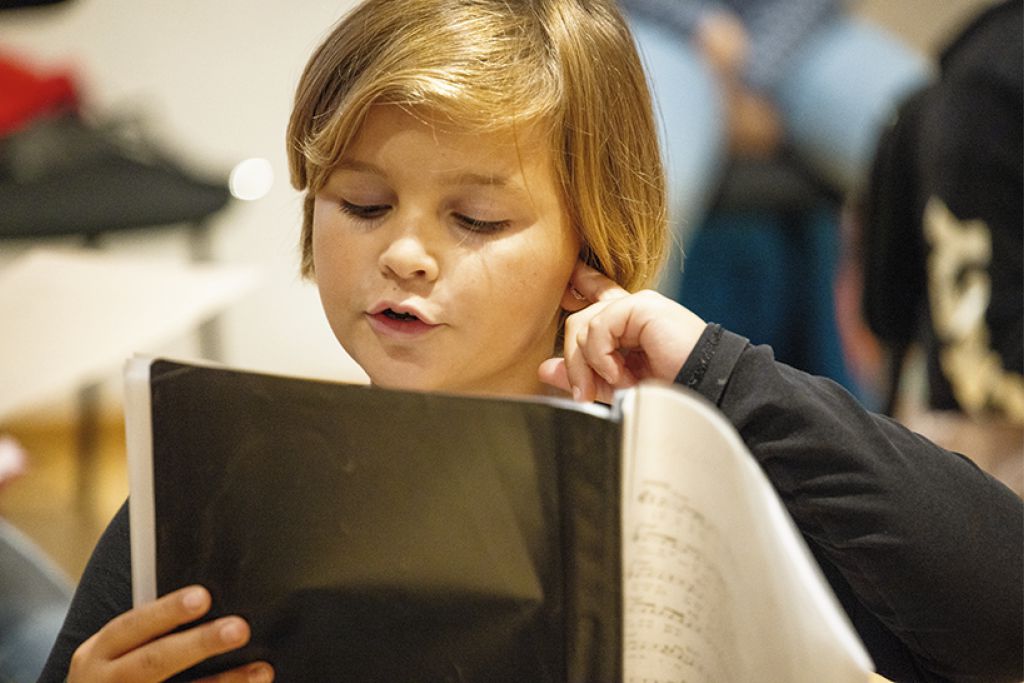
Nearly all of the children involved in the Children’s Choir go on to join the Youth Choir, says Andrea Pfestorf-Janke of the Vienna Choir School’s artistic management office. And: “Every year, around four or five singers from that ensemble are admitted here as students. Some of them would have never even dreamed of applying here without first having been members of our children’s and youth choirs. But the Children’s Choir made the mdw less intimidating to them.” Markus Adenstedt, who took his musical baby steps in the mdw Children’s Choir, began studying music education at the mdw this year. “It was choral singing that brought me first to singing itself and ultimately to my studies here at the mdw—and the Children’s Choir played a central role in this. Going to those choir rehearsals and looking up to the university students was always something special, and it’s what made me want to study here myself someday.
One of the Children’s Choir’s central concerns is developing the children’s vocal technique. Voice teachers show mdw students how to work with an ensemble in such a way that the participating children receive optimal vocal training. And among those who value the high level of vocal, musical, and pedagogical support that these young choristers enjoy are their parents. “The educators always make sure that our children use their voices correctly. And they help our kids gain access to an entirely new world—the world of music.” Lotte and Marthe’s parents became aware of the Children’s Choir at an mdw Campus Party, and it was at the 10th anniversary celebration of the Vienna Choir School that they ultimately decided to register their two daughters for the Children’s Choir. “The combination of weekly rehearsals and a wide range of extras like rehearsal weekends, performances, stage productions, and supervision of our children by the Choir School’s competent employees seemed totally unique to us.”
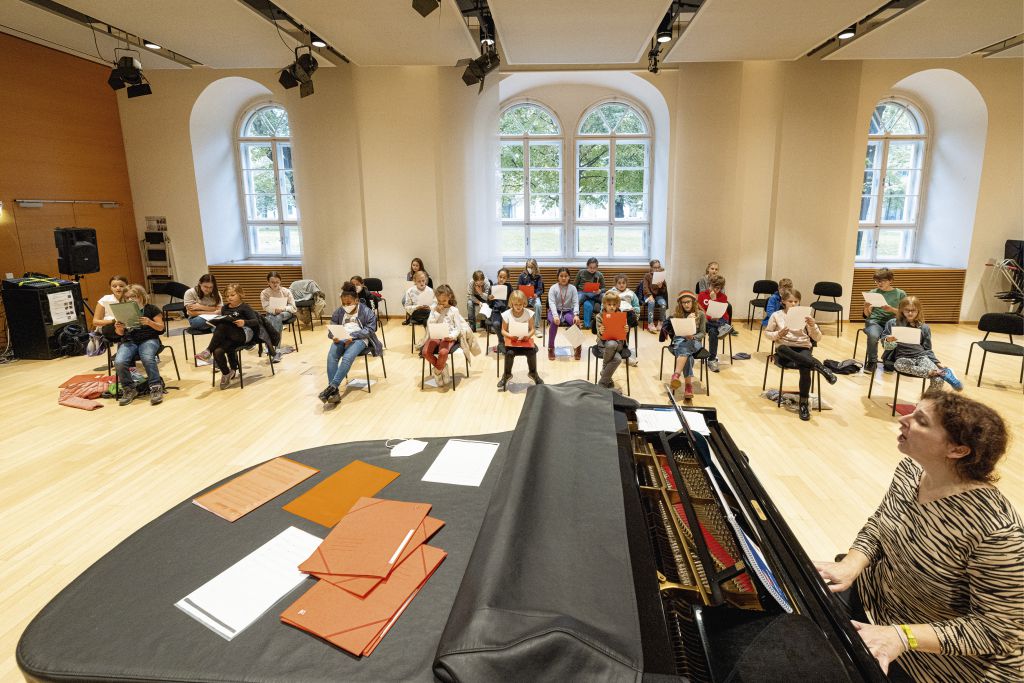
I find it extremely meaningful to work with young voices, study pieces with several parts, and convey the joy of music-making.
Astrid Krammer, director of the mdw Children’s Choir
Just how special the experiences in the Children’s Choir are for these young musicians is something that choir director Astrid Krammer knows well: “There’s now a large body of research that points to how singing makes people smart, healthy, and happy—which naturally also holds true for children’s choirs. And the feedback I’ve heard from our children over the past 10 years confirms this all the more.”
